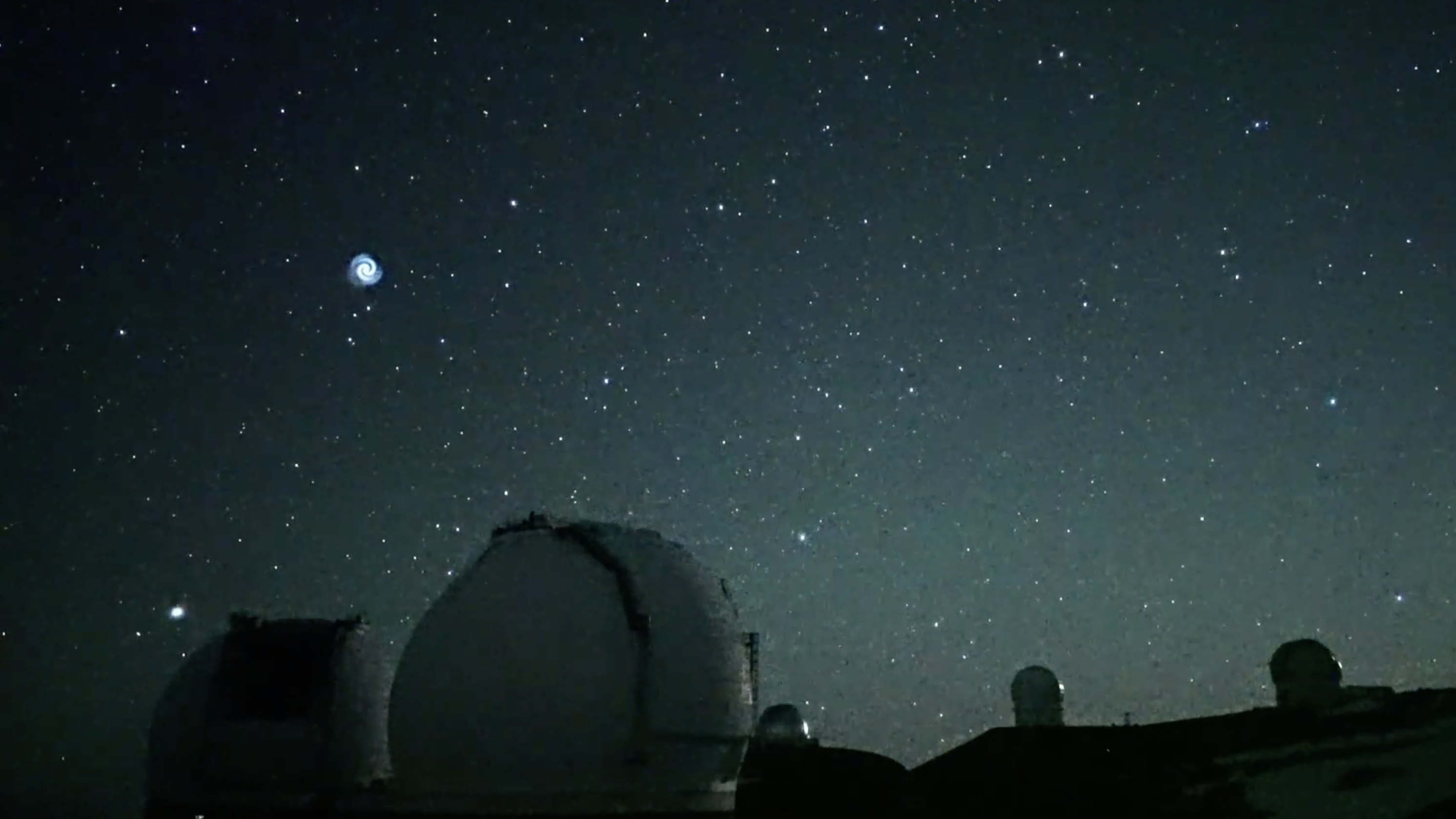A Japanese telescope captured images and video of a flying blue whirlpool shape over Hawaii on Jan. 18.
"The Subaru-Asahi Star Camera captured a mysterious flying spiral over Maunakea, Hawaii" which "seems to be related to the SpaceX company's launch of a new satellite," the Subaru Telescope tweeted on Jan. 19.
The telescope is mounted atop Mauna Kea, a dormant volcano in Hawaii, and is operated by The National Astronomical Observatory of Japan.
In the video, the object starts as a small white sphere flying through the night sky. It then widens into a spiral as it travels before fading into a ring shape and disappearing.
According to the telescope's YouTube channel, a livestream viewer first noticed the event and brought it to staff's attention. The livestream is jointly run by the telescope and Asahi Shimbun, a Japanese newspaper company.
SpaceX launched a global-positioning satellite into medium orbit at 7:24 a.m. that same day from the Cape Canaveral Space Force Station in Florida. The launch used a Falcon 9 rocket.
This isn't the first time a SpaceX launch has created a mysterious swirl in the night sky. One was spotted above New Zealand in June on the same day as a Falcon 9 launch from the same Florida location. After another launch in April, the Subaru Telescope captured a similar image above Hawaii.
Space communities online have suggested that the spirals — and other formations, like the "space jellyfish" — occur when rockets vent their leftover fuel. The gas is expelled at a higher pressure than the atmosphere. It is then illuminated by sunlight, creating the shapes we see from down below.
SpaceX and the Subaru Telescope did not immediately respond to requests for comment.

